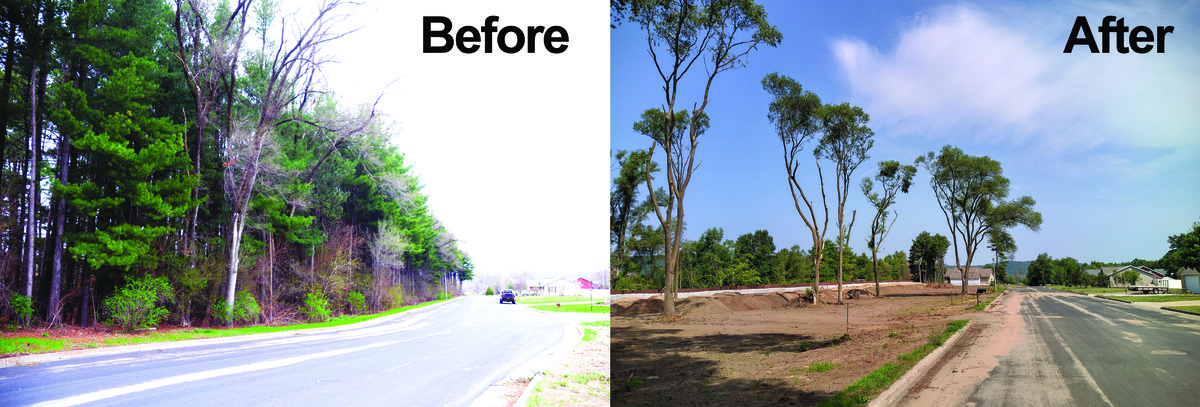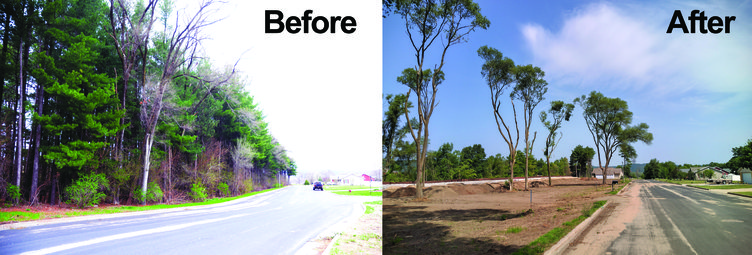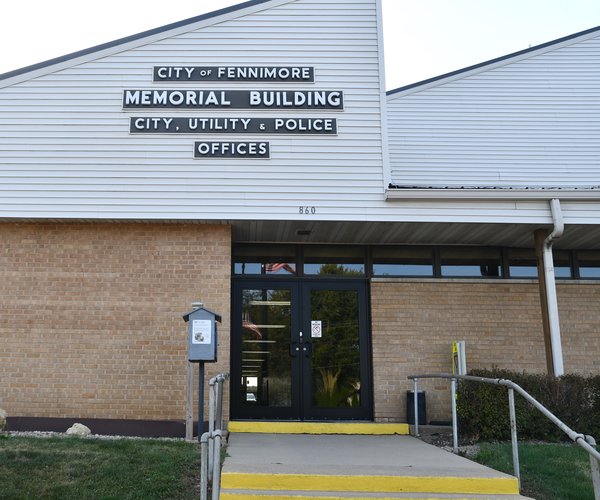Boscobel’s Pine Shores development effort took another step forward this week.
Three of the ten lots the city bought last year were transferred to the Boscobel Housing Authority (BHA) at the August 7 Common Council meeting.
The terms of the deal include rules for what can and can’t be done with the land. For one thing, they can’t be rezoned, which was a contentious issue when the city first purchased the lots.
Two are zoned R1 residential, which limits construction to detached single-family housing.
The third lot is zoned R2, which allows up to 8 units of attached single-family housing. Additional zoning restrictions limit the number of allowable units based on the to the overall size of the lot.
Other restrictions of land use include a ban on mobile homes and restrictions on outbuildings, firewood storage, and such matters. These rules mirror the original development covenants enforced by the prior owners Shimpach Enterprises.
In a meeting last year, Boscobel’s Planning Commission adopted the notion of appointing some residents of the neighborhood to a panel that guides the nature of the development at Pine Shores.
Utility official speaks
The council heard a presentation from Mike Peters, President and CEO of WPPI Energy. WPPI is essentially a non-profit co-op that is owned by 51 small, local utilities like Boscobel Utilities.
The idea, explained Peters, is for smaller utilities to pool their resources and band together to get some of the advantages of larger for-profit organizations—while still keeping rates to a minimum.
“Collectively, WPPI and all the members serve over 210,000 electric meters,” Peters said. “So it’s a relatively decent sized organization that allows us to have economies of scale when it comes to owning power plants or entering into large-scale contracts.”
Those power generators include a nuclear reactor in eastern Wisconsin, as well as coal, natural gas, solar, and wind facilities.
Like nearly all electric utilities, WPPI has a goal of producing zero heat-trapping carbon gases by 2050. In the past decade, according to charts he shared with the council, the co-op has reduced its fossil fuel generation by 10 percent, including a 20 percent reduction in its reliance on coal.
“You’ll see incremental change going into 2030,” Peters said of carbon emissions, explaining that at that time many of the coal plants they rely on today will be converted to natural gas, which produces about half the emissions. “After 2030, you’re going to see very little coal in that chart.”
Seventy-five to eighty percent of Boscobel Utilities’ fees go to WPPI to cover electricity supplied by the coop, or services such as billing and metering, according to Peters.
Other Business
The council also:
• Approved temporary beer and wine permits for “Smoke in the Valley” at the Boscobel Antique Club on September 9 and 10, and Wisconsin River Trails Organizations “Taste of Boscobel” on September 9.
• Raised no objection to the Wisconsin Secure Program Facility’s plan to add hospital and housing space to the footprint already contained within its perimeter.





